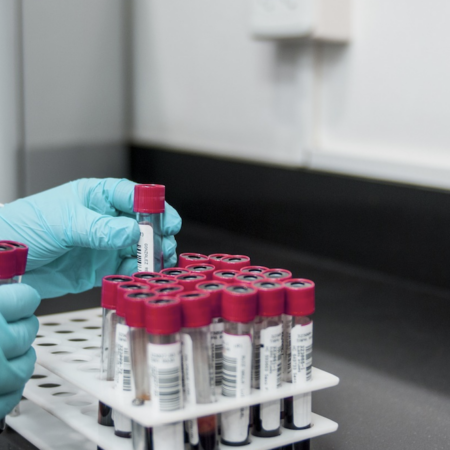Food sensitivity Testing in Cape Girardeau MO
At Dawn of Life Aesthetics & Wellness Med Spa in Cape Girardeau MO, we offer Food sensitivity testing – this can be a valuable tool for identifying adverse reactions to specific foods and managing symptoms related to those sensitivities.


What is Food Sensitivity Testing?
Food sensitivity testing is a diagnostic approach used to identify adverse reactions to specific foods that may not be as immediately apparent as classic food allergies. Unlike food allergies, which involve the immune system’s immediate response (e.g., hives, anaphylaxis), food sensitivities typically involve delayed immune reactions or gastrointestinal responses.
How It Works
- Types of Tests:
- IgG Food Sensitivity Testing: Measures IgG (immunoglobulin G) antibodies against specific foods. Elevated levels of IgG antibodies may suggest a delayed-type immune response to those foods.
- Elimination Diet: Involves systematically removing suspected foods from the diet for a period of time and then gradually reintroducing them to observe any adverse reactions. This is often considered a practical approach to identifying food sensitivities.
- Food Allergy Testing: While not the same as sensitivity testing, allergy tests (such as IgE tests or skin prick tests) are sometimes used to rule out true allergies when sensitivity is suspected.
- Sample Collection:
- IgG Testing: Typically involves a blood sample, which is analyzed for IgG antibodies against a panel of foods.
- Elimination Diet: No specific test is used; it involves dietary changes and monitoring symptoms over time.
- Analysis:
- IgG Testing: The laboratory measures the levels of IgG antibodies specific to different foods. Higher levels may be indicative of sensitivity, though this is still a somewhat controversial and debated area.
- Elimination Diet: Symptoms are monitored and correlated with the reintroduction of specific foods.
- Result Interpretation:
- Results from IgG tests are reviewed by healthcare professionals to identify potential food sensitivities. Elimination diet results are assessed based on observed symptoms and their correlation with food intake.
Benefits of Food Sensitivity Testing
- Identification of Food Sensitivities: Helps identify foods that may be contributing to symptoms such as bloating, gas, fatigue, headaches, or skin issues, which are not typically covered by standard allergy testing.
- Improved Symptom Management: By identifying and avoiding trigger foods, individuals may experience relief from chronic or recurring symptoms, leading to improved quality of life.
- Personalized Diet: Enables the creation of a tailored dietary plan that eliminates or reduces foods causing adverse reactions, potentially improving digestive health and overall well-being.
- Insights into Underlying Issues: Provides potential insights into underlying health issues such as irritable bowel syndrome (IBS), chronic fatigue, or migraines that may be influenced by diet.
- Guidance for Health Professionals: Offers a tool for healthcare providers to guide dietary recommendations and interventions, helping to manage symptoms more effectively.
Considerations
- Controversy and Limitations:
- IgG Testing Debate: The clinical relevance of elevated IgG antibodies in food sensitivity testing is debated. Some experts argue that IgG antibodies may not always indicate a clinical sensitivity or adverse reaction.
- False Positives/Negatives: Testing can sometimes yield false positives or negatives, and results should be interpreted cautiously.
- Cost: Food sensitivity testing, particularly IgG tests, can be expensive and may not always be covered by insurance. It’s important to assess costs and insurance coverage before proceeding.
- Need for Professional Guidance: Results from food sensitivity testing should be reviewed with a healthcare provider or a registered dietitian. They can help interpret results accurately and provide appropriate dietary guidance.
- Elimination Diet Complexity: An elimination diet can be complex and require careful planning. It may also take time to identify food sensitivities, as reactions can be delayed.
- Not a Replacement for Allergy Testing: Food sensitivity testing does not replace allergy testing for diagnosing food allergies, which require different management strategies.
Food sensitivity testing can be a valuable tool for identifying adverse reactions to specific foods and managing symptoms related to those sensitivities. However, it’s essential to approach testing and results with a thorough understanding of its limitations and to work with healthcare professionals to ensure a comprehensive and effective approach to dietary management.
Book your consultation today
Other Services we offer
Aesthetics Services
Facials
Treatment Based Facials
Microneedling
Laser Hair Removal
Waxing
Glo2Facial
Lashes & Brows
Weight Loss Services
GLP-1
Medical Weight Loss
Semaglutide
Tirzepatide
Body Contouring
Functional Medicine Services
Blood Testing
Gut Testing
Food Sensitivity Testing
Hormone Testing
Lymphatic Therapy
Pelvic Floor Therapy
Red Light Therapy
